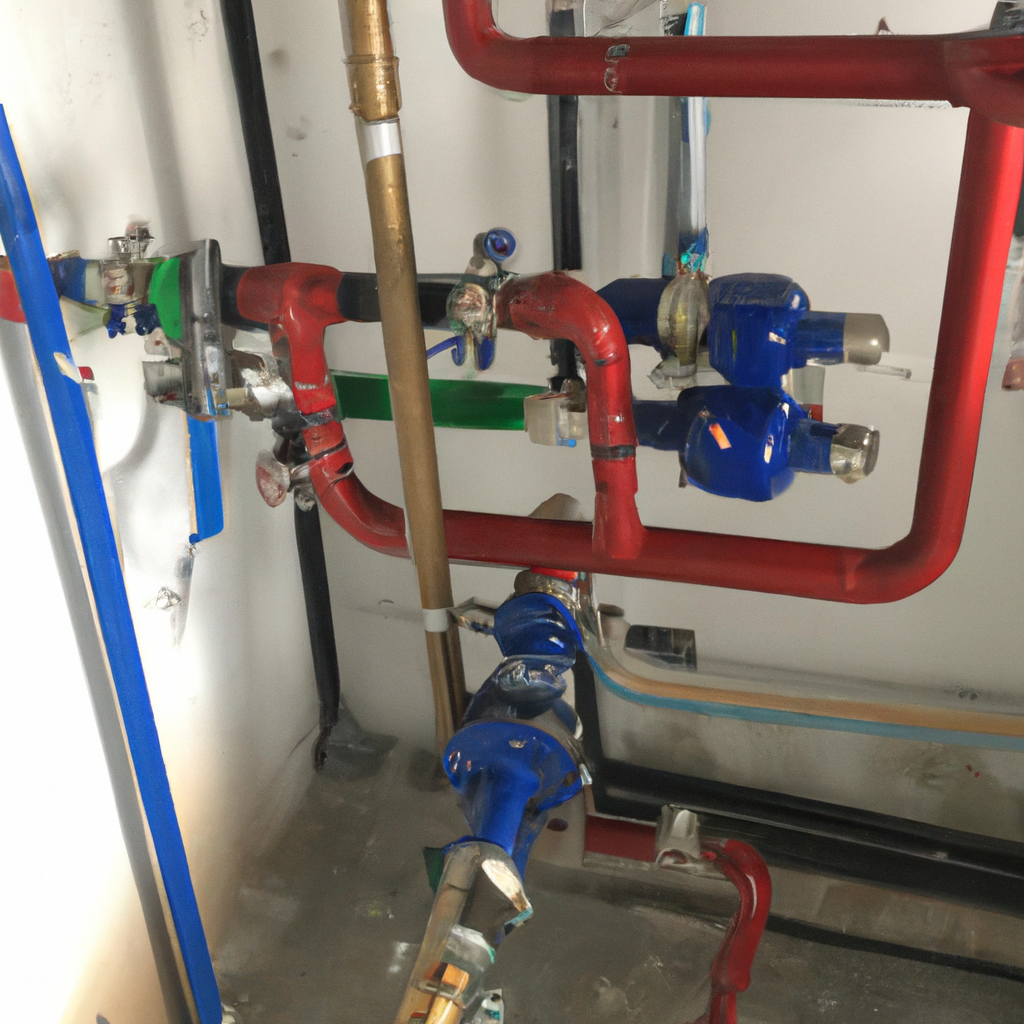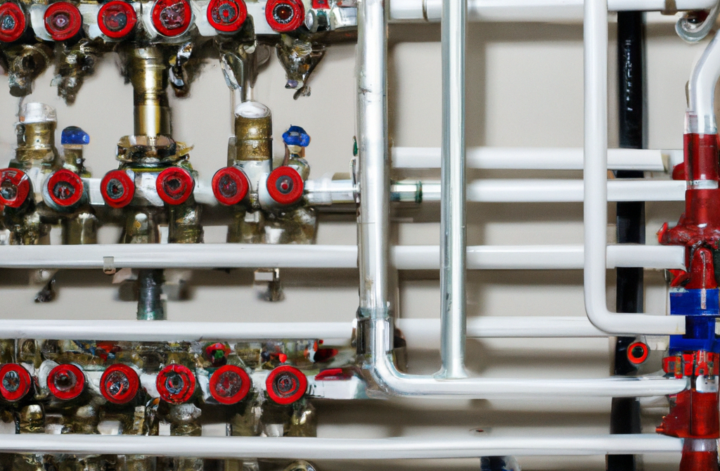Investing in a gas water heater is essential for ensuring a consistent supply of hot water in your home. Whether you’re replacing an old unit or installing a new one, a gas water heater offers several advantages. It provides faster heating, lowers energy costs, and has a longer lifespan compared to electric water heaters.
Types of Gas Water Heaters
When it comes to gas water heaters, there are two primary types to consider: tankless gas water heaters and storage tank gas water heaters.

Tankless Gas Water Heaters
Tankless gas water heaters, also known as on-demand water heaters, provide hot water instantly as needed. They don’t store hot water in a tank but heat it on demand as it flows through the unit. Tankless models are compact, save space, and are highly energy-efficient.
Storage Tank Gas Water Heaters
Storage tank gas water heaters are the traditional models that store a specific amount of hot water in a tank. They continuously heat and maintain the water at a preset temperature. These units are suitable for households with high hot water system demand or larger families.
Factors to Consider Before Buying
Before purchasing a gas water heater, several factors need to be considered to ensure you choose the right one for your home.
Capacity and Size
The capacity of the gas water heater depends on the number of people in your household and your hot water needs. Consider the peak usage times and choose a model that can accommodate your requirements.
Efficiency and Energy Consumption
Energy efficiency is an important aspect to consider to minimize operating costs. Look for models with high Energy Factor (EF) ratings, indicating greater efficiency. Consider the insulation quality and recovery rate as well.
Cost and Budget
Determine your budget range and compare the initial purchase cost, installation expenses, and long-term energy savings. Finding the right balance between affordability and quality is crucial.
Venting Requirements
Gas water heaters produce combustion gases that need to be vented safely. Consider the venting options available in your home and choose a unit compatible with your existing setup or the one that suits your installation plans.
Safety Features
Ensure the gas water heater has safety features such as a pressure relief valve, automatic shut-off, and a flue damper. These features help prevent accidents and maintain optimal safety standards.
Sizing the Gas Water Heater
Sizing the gas water heater is crucial to ensure it meets your household’s hot water demand without wasting energy or running out of hot water.
Determining Hot Water Demand
Calculate your household’s hot water demand by considering the number of bathrooms, appliances, and fixtures that require hot water. Determine the peak hot water usage times to accurately size the unit.
Calculating the Required Capacity
Based on your hot water demand, calculate the required capacity of the gas water heater. Consider the First Hour Rating (FHR), recovery rate, and tank size to ensure it meets your needs.
Energy Efficiency and Savings
Investing in an energy-efficient gas water heater not only benefits the environment but also reduces your utility bills over time.
Understanding Energy Efficiency Ratings
Energy efficiency ratings indicate how efficiently a gas water heater converts fuel into hot water. Look for models with high EF ratings to ensure lower energy consumption.
Choosing an Energy-Efficient Model
Consider features like better insulation, advanced burner technology, and enhanced heat exchangers that contribute to increased energy efficiency. Energy Star-certified models are a reliable choice.
Long-Term Cost Savings
While energy-efficient models may have a higher upfront cost, they provide long-term savings through reduced energy bills. Consider the payback period and potential savings over the lifespan of the unit.
Installation and Venting
Proper installation and venting of a gas water heater are essential for optimal performance and safety.
Professional Installation
Hire a licensed professional to install your gas water heater. They will ensure proper placement, venting, gas connections, and compliance with local codes and safety regulations.
Venting Options for Gas Water Heaters
Depending on your home’s layout and the gas water heater’s location, you can choose from different venting options such as direct venting, power venting, or conventional venting.
Maintenance and Care
Regular maintenance and care are necessary to keep your gas water heater running efficiently and extend its lifespan.
Regular Maintenance Tasks
Perform routine maintenance tasks like flushing the tank to remove sediment, checking and replacing sacrificial anode rods, and inspecting for leaks or corrosion.
Troubleshooting Common Issues
Familiarize yourself with common issues like pilot light problems, thermocouple malfunctions, and gas valve issues. Understand how to troubleshoot these problems or when to call a professional.
Extending the Lifespan of Your Gas Water Heater
Proper maintenance, regular inspections, and timely repairs can significantly extend the lifespan of your gas water heater. It’s important to address any issues promptly to avoid costly replacements.
Safety Considerations
Ensuring the safety of your household is paramount when installing and using a gas water heater.
Gas Leaks and Carbon Monoxide Risks
Gas leaks and carbon monoxide (CO) leaks are potential risks associated with gas water heaters. Install CO detectors, learn the signs of a gas leak, and schedule regular inspections to ensure safety.
Safety Features to Look For
Choose a gas water heater with safety features like a pressure relief valve, automatic shut-off, and a flue damper to prevent dangerous situations.
Proper Ventilation and Maintenance Checks
Ensure the gas water heater is properly vented to expel combustion gases outdoors. Regularly check the venting system for blockages or leaks and schedule professional inspections as recommended.
Comparing Brands and Models
Researching reputable brands and comparing different models is essential to make an informed purchase decision.
Researching Reputable Brands
Look for well-established brands known for their quality, reliability, and customer support. Read reviews and seek recommendations from trusted sources.
Reading Customer Reviews
Customer reviews provide valuable insights into the performance, durability, and customer satisfaction of specific gas water heater models. Consider both positive and negative reviews to make a balanced judgment.
Comparing Features and Warranties
Compare the features, warranties, and after-sales service provided by different brands. Consider factors like warranty coverage, customer support, and availability of replacement parts.
Budgeting and Financing Options
Setting a budget and exploring financing options can help you manage the costs associated with buying and installing a gas water heater.
Setting a Budget
Consider your budget constraints and weigh the initial investment against long-term energy savings. Factor in installation costs, maintenance expenses, and potential repairs.
Exploring Financing Options
If your budget is limited, research financing options available through manufacturers, retailers, or financial institutions. Evaluate interest rates, repayment terms, and any additional fees.
Factoring in Long-Term Savings
Remember that investing in an energy-efficient gas water heater will result in long-term savings on your utility bills. Consider the potential return on investment over the lifespan of the unit.
Installation Process
When it’s time to install your gas water heater, following proper procedures is crucial for a successful installation.
Hiring a Professional Installer
Engage a licensed professional with experience in gas water heater installation. They will ensure compliance with local codes, safety standards, and optimal performance.
Obtaining Necessary Permits
Check with your local authorities if permits are required for installing a gas water heater. Obtain the necessary permits before starting the installation process to avoid any legal issues.
Tips for a Smooth Installation Process
Prepare the installation area, ensure proper ventilation, and have all the necessary tools and materials ready. Communicate your preferences to the installer and address any concerns or questions beforehand.
Maintenance Tips and Tricks
Regular maintenance is key to keeping your gas water heater operating efficiently and prolonging its lifespan.
Flushing the Tank Regularly
Flush the tank annually to remove sediment buildup, which can reduce efficiency and damage the unit. Follow the manufacturer’s instructions or hire a professional for this task.
Insulating the Hot Water Pipes
Insulate the hot water pipes to minimize heat loss during distribution. This reduces energy waste and ensures hot water reaches the taps more quickly.
Checking the Pressure Relief Valve
Test the pressure relief valve periodically to ensure it’s functioning properly. This valve prevents excessive pressure buildup inside the tank and safeguards against potential explosions.
Conclusion
Buying a gas water heater for your home is a significant decision that requires careful consideration of various factors. By understanding the different types of gas water heaters, sizing requirements, energy efficiency, installation procedures, and maintenance tips, you can make an informed choice that meets your hot water needs efficiently. Enjoy a continuous supply of hot water and the comfort it brings to your home!

